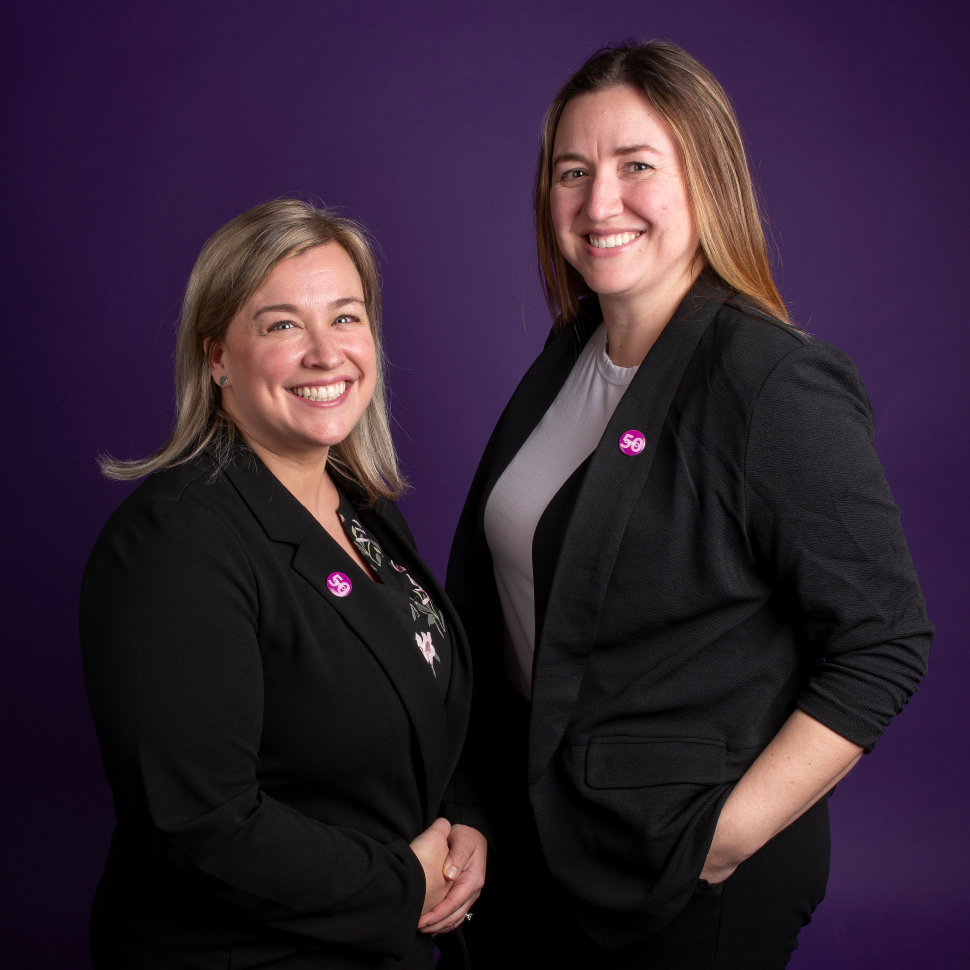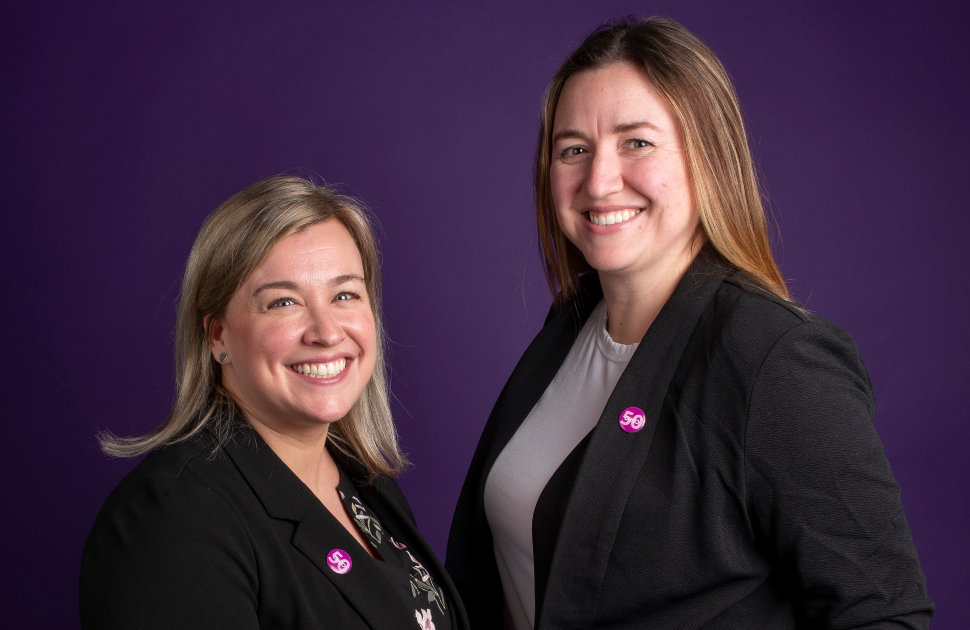
Peer support for CHEO staff, medical staff and learners has significantly improved thanks in large part to the vision of critical care nurses in the pediatric intensive care unit (PICU).
It began when PICU Advanced Practice Nurse Sophia Bucking and her colleagues felt the toll of a traumatic case during a shift in 2017. Recognizing the inherent risk of burnout and compassion fatigue, Bucking initiated conversations with critical care leadership about the need for more timely mental health support.
CHEO Nurse Educator Brennah Holley was already addressing this gap, and Bucking accelerated the effort through an RNAO Advanced Clinical Practice Fellowship.
The fellowships empower front-line nurses to build skills and expertise and give them a chance to lead initiatives that help address a need or update best practices. They also contribute to CHEO's designation as a Best Practice Spotlight Organization by the Registered Nurses Association of Ontario (RNAO).
Bucking aimed to create a program that provided timely debriefing and emotional care. Coincidentally, she would finish her fellowship just as the COVID-19 pandemic began. Amid unprecedented stress, Bucking and colleague Kierstin Kinlin refined their vision of peer support, building on the fellowship’s foundation.
They chatted at length, leaning on each other in those life-changing moments, and they saw the chance to make things better.
Bucking’s fellowship had shown the formal development and implementation of a peer debriefing model was the only feasible choice for a hospital of CHEO’s size and patient population.
Kinlin would then help develop the PEEPS (Peer Emotional Empowerment Program of Support) initiative, piloted in the PICU, Hematology-Oncology, and Medical Day Unit. It provides psychological support to health-care workers during and after acute events or general stress.
Working closely with a team of mentors, plus Holley and CHEO Spiritual Advisor Jeff Vidt, Kinlin worked to improve care — the core of nursing work — for patients and staff.
“We have physical PPE. This is psychological PPE,” said Kinlin, emphasizing the need to protect health-care workers’ mental health.
PEEPS, rooted in Critical Incident Stress Management principles, is now a key resource at CHEO and the neighbouring Roger Neilson Children’s Hospice. Support is available in person and virtually, ensuring accessibility and privacy.
Bucking said it is invaluable to have a respected member of your work family validate your experience.
“Facilitators, who also have positions within CHEO, are compassionate, kind people who are here to help you on your difficult days. It is one of those things that makes CHEO an excellent, special place to work,” she said.
The program reflects CHEO’s commitment to staff well-being, driven by the leadership of nurses like Bucking and Kinlin, who leveraged evidence-based practices to create lasting change.
Kinlin and Bucking said they are proud to see the change carried out in practice because taking care of staff and each other is essential to providing the best care for children and youth.
Completing an RNAO fellowship has also given them a chance to take a leadership role, contributing to their professional growth and development as nurses. The fellowships also recognize and celebrate their dedication to the craft of providing high-quality, empathetic care.





